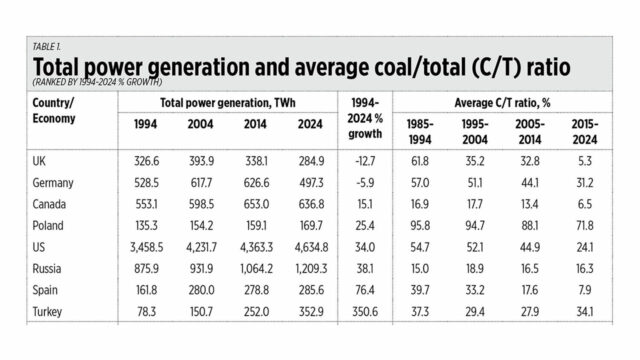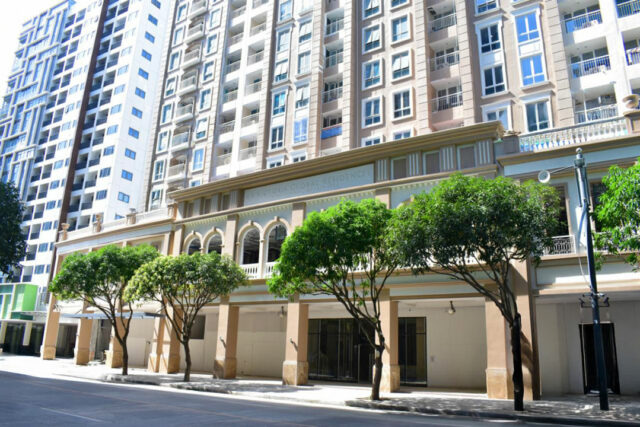By Charmaine A. Tadalan, Sub-Editor
CEBU — Megaworld Corp. has nearly sold out units at its La Victoria Global Residences in Cebu, with property prices increasing by 71% since the project’s launch in 2018.
The 20-story building, located within Megaworld’s Mactan Newtown in Lapu-Lapu City, is now being offered at an average price of P300,000 per square meter, up from the initial average price of P175,000. The company attributed the increase to developments within the township reaching advanced stages and to a growing number of foreigners seeking to settle in Cebu.
The price appreciation is “because of the completion of a lot of developments… that made this township very mature,” Megaworld Vice-President and Head for Public Relations and Media Affairs Harold Brian C. Geronimo said at a June briefing during a media tour of La Victoria.
Around 95% of the 181-unit tower has already been sold, Mr. Geronimo said, adding that Megaworld will begin turnover to unit owners within the year.
“We’ve almost sold out the units, [yet] there’s still a demand, very strong demand for units here in Mactan Newtown, on this side of Cebu,” he said.
“In Lapu-Lapu City, there is still a spike in demand not just from locals, but more importantly, from foreigners who want to settle here in Cebu.”
Mr. Geronimo linked the foreign demand to the development of the Mactan-Cebu International Airport, which is about 15 minutes from the township, and to the rise in direct international flights to Cebu.
“The airport is serving more flights [and] more passengers every year, compared to when the airport was small,” he said.
“There has been an influx of a lot of tourists coming to Cebu, not to Manila.” Among the countries that have direct flights to Cebu are Singapore, the United States, Japan, South Korea, Qatar, and the United Arab Emirates.
Data from the Cebu provincial government showed that more than 5.1 million tourists visited the island province in 2024, of whom 1.9 million were foreign visitors.
South Korean travelers accounted for most of the arrivals, with 1.028 million. They were followed by tourists from the US (234,511), Japan (226,755), China (127,084), and Taiwan (88,728). Other visitors came from Australia, Germany, France, the United Kingdom, and Canada.
Mr. Geronimo said there is strong interest in Cebu properties among foreign visitors, some of whom have already set up businesses locally.
“There has been a lot of interest in properties from a lot of foreign visitors. They’ve settled here and chosen Cebu to be their second home,” he said.
“Also, there are a lot of tourists who have established their businesses in Cebu [that’s] tourism related.” He added that the company is open to allowing residents to host Airbnb units, although final policies would be up to the homeowners’ association.
La Victoria is located at the heart of the township, across from the Savoy Hotel Mactan Newtown and the Belmont Hotel Mactan, which is being rebranded under Accor’s Mercure Hotel. Belmont will also house international dining concepts, including Gordon Ramsay Fish & Chips and Street Burger by Gordon Ramsay — marking the chef’s first location outside Metro Manila.
Mactan Newtown Beach is also within walking distance of the tower, giving residents access to the beach, an infinity pool, and a Ceremonial Garden with an open-air setting for events such as weddings and retreats, among other resort-style amenities.
Mr. Geronimo also attributed the price appreciation to the township’s location, which is surrounded by international hotels.
“If you try to look at the spike, all the international resorts are surrounding Mactan Newtown. We are just beside Shangri-La. There’s Sheraton, there’s Dusit [Thani], they’re all here,” he said.
“We are the only township so far here in Lapu-Lapu City.”
The 30-hectare Mactan Newtown offers more than 2,400 residential units across seven buildings, including La Victoria, and operates more than 80,000 square meters of office space. Educational institutions, including the Newtown School of Excellence, along with retail and service establishments, are also located within the township.
It will also house Cebu’s first standalone convention center, the Mactan Expo, which is being prepared to host the ASEAN Summit and the ASEAN Tourism Forum in 2026.
Soon, the Mactan World Museum will open within the township to showcase a collection highlighting the historical ties between the Philippines and Spain.
A NOD TO HISTORY
Much like Megaworld’s other developments, La Victoria pays tribute to significant historical events that took place on Mactan Island.
Its name is derived from Spain’s Galleon Victoria, the ship that circumnavigated the globe and brought Ferdinand Magellan to the Philippines in 1521.
“This is a very unique condo. This really celebrates the rich history of Mactan Island, which is the arrival of the Galleon Victoria, the first ever galleon that circumnavigated the globe in the 1500s,” Mr. Geronimo said.
“We are celebrating that. We are right in the area where that happened.”
The tower’s design features Spanish architectural elements. Its name, La Victoria Global Residences, is inscribed on the façade along with the phrase Viaje Español de 1519-1522.
The lobby displays three artworks depicting maps of Mactan Island, Spain, and Homonhon Island — where Magellan first landed — as well as a miniature replica of the Galleon Victoria.
La Victoria offers units ranging from 38 to 118 square meters, each with a balcony. A 79-square-meter two-bedroom unit with three bathrooms and a maid’s room sells for about P20 million. A 59-square-meter one-bedroom unit with two bathrooms is priced at P14 million, while a 38-square-meter studio unit sells for about P9 million.
All units come with a finished kitchen, air conditioning, and a video intercom system.
The third-floor amenity deck features an infinity pool, a kiddie pool with a sunbathing deck, a children’s play area, a function room, a fitness center, a jogging path, a fitness trail, and a daycare center.
Residents also enjoy panoramic views of the Hilutungan Channel, Cebu Strait, and Magellan Bay — constant reminders of Cebu’s place in Philippine history.

























